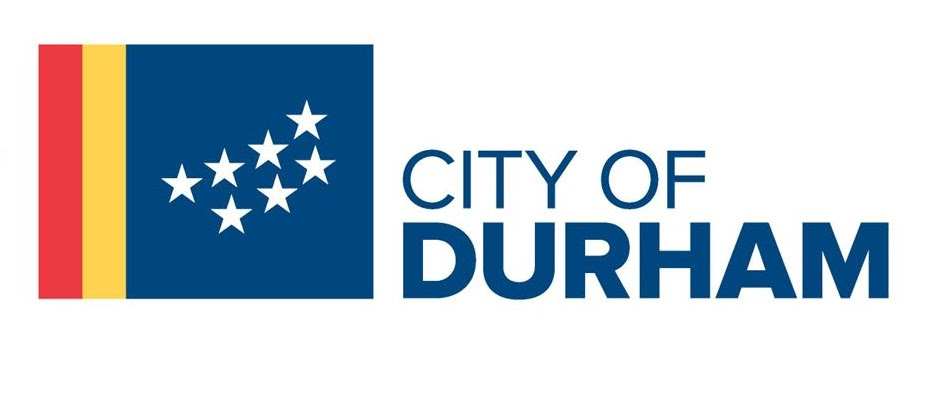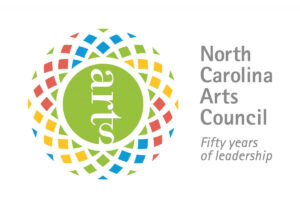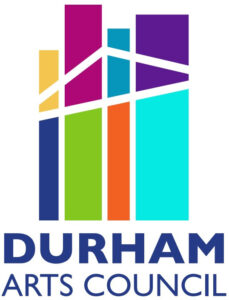Monday Musicale with the Maestro – October 30, 2023 – In Praise of Mentors
IN PRAISE OF MENTORS
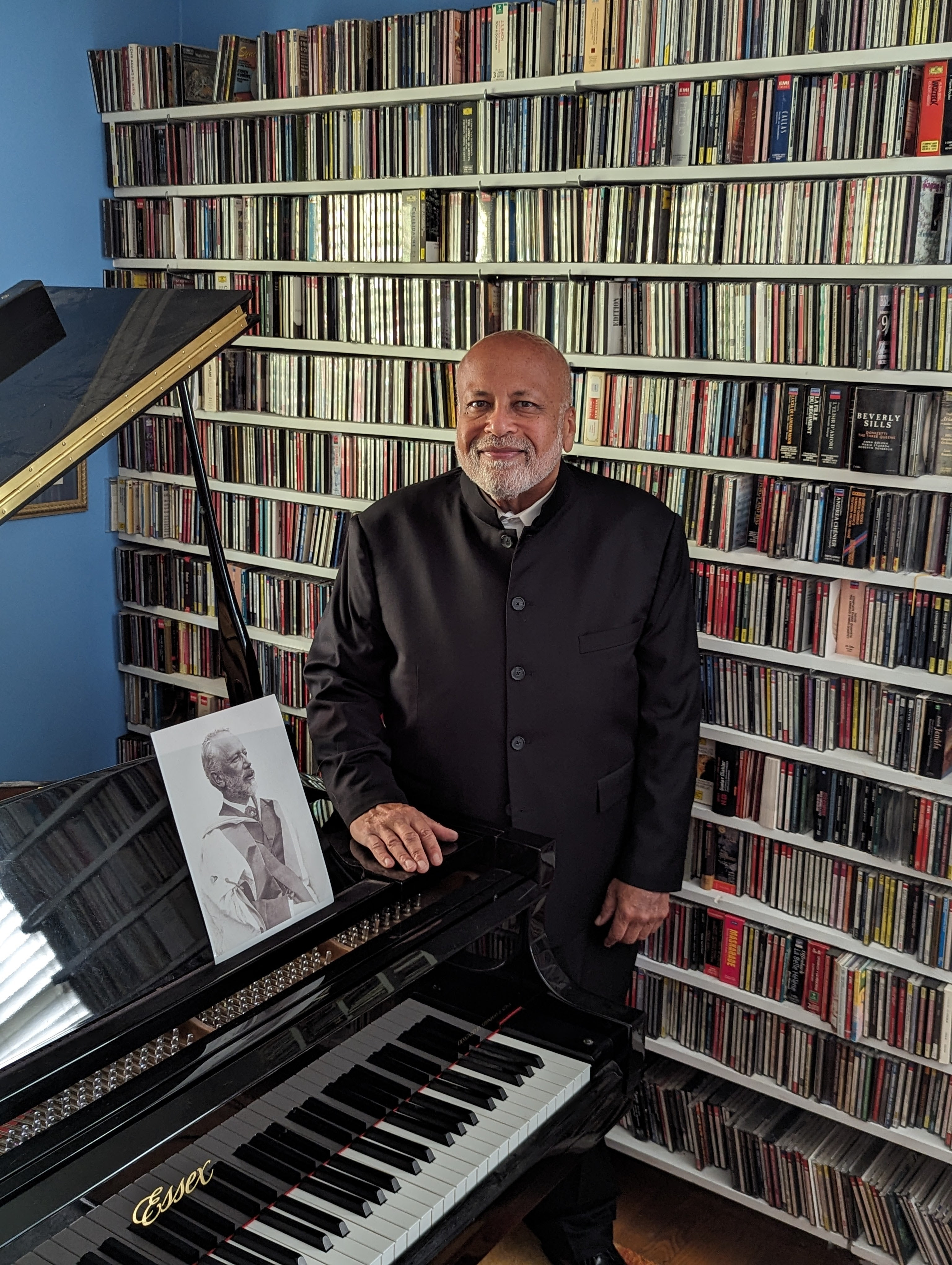
“Everyone who makes it in this world makes it because somebody older and more powerful takes an interest.”
–Tony Kushner, Angels in America: Part 1—Millenium Approaches, Act 2, Scene 4
While looking back over my life and writing my memoirs, I’m seeing more clearly certain people who were essential to my career as an artist. These are the people like my mother, who said, “When faced with two challenging options, choose the more difficult of the two. You will learn more.” Indeed, I took up composing because I found it to be the most challenging of all musical assignments: to create a sonic universe that hitherto did not exist. These are people like my friend Rob Robinson, who when I was 25 and enduring a personal crisis said, “You need church [religion] Let’s go today.” That experience planted a seed that evolved later, when a mid-life crisis led to a spiritual blessing that put me on a better path.
We all have a devil on one shoulder who is prone to whisper in our ears at times, Who do you think you are kidding? You don’t have what it takes. You seem to be suffering from delusions of adequacy. These spirits of self-doubt remind me of William Safire’s phrase, “the nattering nabobs of negativism.” It is a rare person who is never unsure about their abilities. This is especially understandable when one is young, inexperienced, and short on both internal and external validation.
Of course, this kind of much-needed imprimatur needs to come from a different source than family or friends. Luckily for me, from the time of my conducting debut at age 15, there were older professionals who told me that being a conductor was something that I WAS capable of achieving. When I was 19 and a sophomore at the Oberlin Conservatory, I was invited by the Music Director of the Cleveland Orchestra, Lorin Maazel, to direct that orchestra in a conductors’ seminar. I was both excited and terrified—and for good reasons! I was ten years younger than the other conductors, and the orchestra was as great as any in the world. Fortunately, seconds before I went on the stage to face the lions, the Assistant Conductor, Robert Page, pulled me close to him and whispered in my ear, “Have fun.” This was brilliant! It immediately calmed me and reminded me of the title of Leonard Bernstein’s first book, The Joy of Music. After I conducted the first movement of Beethoven’s 2nd Symphony, a group of the orchestral players found me in my dressing room and said to me in so many words, “You are green as grass, but you have a spark. Don’t lose that. “
At the time, Lorin Maazel was also the Music Director of the Vienna State Opera, the greatest opera house in Europe. His “thumbs-up” verdict on my conducting meant so much to me because, in my opinion, there has never been a greater maestro of gestural clarity and score preparation. A few years later, he asked me to conduct the Finale of Beethoven’s Symphony No. 3 (“Eroica”) in a rehearsal with the same ensemble. By this time, I had learned that according to Maazel, a conductor should be able to write out from memory whatever they are conducting. I suspect HE had a photographic memory, which I do not possess. Thus my challenge was to work harder than ever to impress him with my command of the material. Afterward, he said to me, “Bravo, you absolutely knew that score perfectly,” and I nearly fainted. That one sentence gave me ammunition aplenty to go forward in my career.
As we prepare for our next concert—dedicated to the music of Tchaikovsky—I’ve had further occasion to reflect on the enormous (but sometimes hidden) impact of mentors. I have been obsessed with the music of Tchaikovsky (one of my “soulmate composers”) since my early teens. Alexander Poznansky, one of the foremost Tchaikovsky researchers, relates a wonderful story of Tchaikovsky’s own teen days, when he was starting to compose. One day, Poznansky explains, Tchaikovsky confided to another student (Sergey Kireyev) his conviction that he would one day be a famous composer. According to Tchaikovsky’s younger brother, Modeste, “Having said this, he grew frightened by the madness of his words, but to his surprise his listener did not laugh at him, and not only did he not contradict him, but he even supported him in this self-conceit, which touched the unrecognized musician to the depths of his soul.”
According to Modeste, Tchaikovsky’s appreciation for Kireyev’s validation was life-long. It is revealing that on the wall next to his composing table at his last home in Klin, hang two photographs of Kireyev.
Even a genius needs external confirmation of what they know—or hope—to be true about the extent of their capabilities. In his young adulthood, Tchaikovsky’s essential validator was Nikolai Rubinstein.
The Rubinstein brothers (no relation to the 20th-century piano giant, Arthur Rubinstein) were musical legends in their lifetime. Both were famous as conductors, composers, and pianists. In fact, Anton was considered one of the greatest pianists of the 19th century—a virtuoso with charisma to spare! But his younger brother Nikolai was his equal and perhaps a more reliable technician. It was Nikolai who played the premiere of Balakirev’s piano work Islamey, which, according to Harold C. Schonberg, “was at one time considered to be the most difficult of all piano pieces.”
Tchaikovsky was born in 1840, when Russia was still in its cultural infancy. There were no fully professional orchestras, opera companies, or music schools at that time. Thus a few visionary souls, including Nikolai Rimsky-Korsakov, decided to form Russia’s first conservatory in Saint Petersburg. A few years later, Nikolai Rubinstein became the director of the new Moscow Conservatory and “discovered” the 23-year-old Tchaikovsky, whom he saw as one of the great hopes of Russian music. He asked Tchaikovsky to join the music faculty and even housed him until he was able to afford a place of his own. Through the years, Nikolai conducted the premieres of some of Tchaikovsky’s greatest works, including his Romeo and Juliet -Fantasy Overture and his opera Eugene Onegin. Without Nikolai’s fervent and unflagging advocacy, Tchaikovsky’s career might have developed only in fits and starts, if at all.
Piano Concerto No. 1
In 1874 Tchaikovsky was approaching an exciting time in his artistic life when he had gained enough compositional craft that he could dare to be bolder and more original. This period includes two near-masterpieces: the opera Vakula the Smith and the orchestral tone poem The Tempest, inspired by Shakespeare’s play. And then he began writing his first (now famous) piano concerto. He wrote it quickly, in a blaze of inspiration. It was finished in December 1874, and he played it for Rubinstein on January 5, 1875. Tchaikovsky felt sure that Nikolai would love the piece and champion it as its soloist. But this was not to be.
He played the 1st movement. Silence. No reaction from Rubinstein. Then the 2nd movement. Silence. By now deeply concerned, he nevertheless plunged into the Finale of the work. But at its conclusion, Rubinstein exploded in a long monologue of unbridled rage!
Rubinstein said that the entire piece was so awful that it would be hopeless to correct it and that only a few pages could be salvaged from it. “It was a wholesale, absolute condemnation,” Tchaikovsky wrote. “In my agitation and anger, I could say nothing.” Later that evening, Rubinstein came to Tchaikovsky’s room and softened his opinion, saying that if the piece were re-written to his specifications, he would consider performing it. Tchaikovsky replied, “I will not change a single note and will publish it exactly as it is now!”
Despite this show of bravado, Tchaikovsky’s self-confidence was deeply shaken. And he was depressed for several weeks. Even three years later, describing this scene and his emotional response to it, his bitterness persisted. The wound was still fresh.
But as Nietzsche famously wrote, “That which does not kill us makes us stronger.” And Tchaikovsky learned a hard, but necessary lesson as he mulled over WHY Rubinstein had overreacted so strongly to what Tchaikovsky knew in his heart was his first instrumental masterpiece. The parent-child, teacher-student relationship can sometimes contain hidden emotional issues and grievances that are triggered by the situation at hand. Tchaikovsky was aware of the power imbalance in their relationship and eventually realized that his mentor’s explosive reaction was a form of “petty tyranny” stemming from compositional envy. Nikolai’s older brother was a famous composer, while his own talents lay in other areas. But as Tchaikovsky’s composition mentor, Rubinstein must have found it galling that a younger man had already so outclassed him as a creator.
Envy aside, composers must often deal with incomprehension upon a first hearing of their works—especially when it is bold and original. A three-minute song is one thing, but a 48-minute composition can take time to process. The first time listening to a large-scale work is always merely an introduction to it—a first date that might, given time, lead to an eventual love affair. Composers must understand this and gird their loins when first reviews and reactions to their new works are negative.
For instance, in December 1881 the world premiere of Tchaikovsky’s now-famous Violin Concerto was given in Vienna, and Europe’s most famous music critic review stated of the work:
(Sic—actually, Eduard Hanslick.)
Of course, Tchaikovsky was deeply offended. But he knew he had written a fine work and never thought of revising or destroying it. The painful “1st piano Concerto experience” with his most trusted artistic friend, Nikolai Rubinstein, led to a strengthening that enabled him to trust his artistic judgement over that of a first-time listener.
And there was a happy conclusion to this personal dispute with his mentor! Nikolai later championed the Piano Concerto No. 1, and Tchaikovsky even dedicated his second piano concerto to him. It’s revealing that Tchaikovsky dedicated more pieces to his mentor than to any other friends or family members.
The Death of Nikolai Rubinstein
At the beginning of 1881, Rubinstein’s health began to decline. Despite this, he stuck to his busy schedule. At some of his concerts, he was too weak to conduct standing and was seated in a chair. By this time, his doctors were alarmed and urged him to travel to Paris to be seen by expert doctors. But during the train trip, Rubinstein began to suffer from agonizing stomach pains. In Paris, though the doctor’s diagnosis was kept from him, he was found to have tuberculosis of the intestinal tract, and he was already in the final stages of the illness. Despite the increasing pain, Rubinstein managed to present an optimistic outlook to the nurses and his visitors. Tchaikovsky, who was in Nice at the time, received a telegram saying that the last days of his beloved mentor were at hand. He immediately booked a train to Paris, but a few hours later, he received news that Rubinstein had passed. Tchaikovsky arrived just in time for the funeral service, which was packed and included some of the great French composers of the day, including Massenet and Lalo.
Tchaikovsky’s reaction to all of this led him to do a long period of soul-searching. As for all of us, there are no words to describe the torment we feel at the death of a loved one–the difficulty of believing the impossible. How could it be that we have had a last conversation with this person? We worry—What did we talk about? What should have been said? Thoughts of our own mortality can also overwhelm us. Around this time, Tchaikovsky began an interest in religion, and he took stock of what he had produced as a composer. In the several years after his disastrous sham marriage, he had produced a string of masterpieces that are an important part of his legacy. These include the 1812 Overture, the Serenade for Strings, and the Violin Concerto. These works are justifiably famous. But they are not personal. They do not reveal the complexity of Tchaikovsky’s impassioned, sometimes tormented inner soul. It was if he did not trust his most primal emotions after the humiliations of leaving his wife and fleeing his teaching job. These lighter works were a kind of escape to a “safe space” where emotions and events could be controlled.
But Rubinstein’s death demanded a deep musical response, something written with his soul and worthy of his mentor’s legacy and love. The result was his most substantial chamber work, the 47-minute Trio for Piano, Violin, and Cello, completed a year after Rubinstein’s passing. The choice of a piano was no doubt an homage to Nikolai’s pianism. The trio has the simple dedication “To the memory of a great artist.”
The opening movement, titled “Pezzo elegiaco,” begins with a somber melody that is heard at key moments in the outer movements. The word elegiac is appropriate for this piece, though much of it is joyful and optimistic. The personal and intense nature of this masterpiece laid the foundation for Tchaikovsky’s decade of final epic works, including his most personal opera The Queen of Spades and his most personal symphony, the Symphony No. 6, which he titled “Pathetique” for its evocation of suffering and strong emotion. The final moments of the piano trio anticipate the funereal music of his Sixth Symphony, which turned out to be the composer’s own requiem. He died suddenly only ten days after conducting the premiere.
My favorite Tchaikovsky biographer is Alexander Poznansky, whose collection of books on the great Russian master are thoroughly researched and deeply humane. In Tchaikovsky—The Quest for the Inner Man, he writes:
Tchaikovsky possessed an ultimately tragic creativity. Some element of tragedy is present in the very nature of art, in man’s contemplation of mortality and the insignificance of his earthly lot, in the constant struggle of good and evil, in man’s precarious relations with God, the world, society and himself. Such a view of destiny is fully consonant with Tchaikovsky’s outlook on life as expressed in his letters and as recorded by others. The wide gamut of emotion in his music , while certainly far more difficult to conceptualize, clearly ranges from the innocent simplicity of The Nutcracker, to the necessarily tragic force of Romeo and Juliet, the Piano Trio and the Sixth Symphony. (559-60)
As a life-long Tchaikovsky fan, you can imagine my joy at bringing to the music world’s attention a completely unknown symphonic adaptation of this profound and profoundly personal Piano Trio.
Tchaikovsky/Rapée: Symphonie Élégiaque
Ernö Rapée (1891-1945) was born in Budapest, Hungary and received his education at the Royal National Hungarian Academy of Music, from which he graduated at age 18. Though some today may be unfamiliar with the name, Rapée was an artist of great skill and influence—a conductor and composer who worked both in Europe and America. He came to America in 1916, and the apex of his career was as conductor of New York City’s Radio Musical Hall Orchestra. From 1920-1940, this group of 120 musicians was one of the largest symphony orchestras of its era. Rapée conducted the first NYC Mahler symphony cycle and the first performance of Mahler’s “Symphony of a Thousand” since Leopold Stokowski’s American premiere of it in 1916. In 1927, Rapée inaugurated a weekly series of Sunday morning radio broadcasts (from 1928-1931), conducting the 200-piece Roxy Symphony Orchestra.
Rapée himself was an important mentor, for it was he who discovered the young violinist Eugene Ormandy, who had also been born in Budapest and attended the same music school. Rapée guided the brilliant young violinist from the age of 24 and appointed him his assistant concertmaster and assistant conductor. Though Ormandy was untried yet as a professional musician, he quickly showed his skill as a recording violinist and a guest conductor. It was in conducting, of course, where his greatest talent lay, and it was in this capacity that I would eventually meet him (though that’s another tale!)
When I was 15, I saw in a music catalogue that Rapée had orchestrated Tchaikovsky’s Piano Trio. The trio is of symphonic dimensions, and Rapée must have thought that its thematic material, its development and contrapuntal treatment, called for the resources of a full orchestra. For literally half a century I searched for this work, and finally, several months ago, it turned up in the Fleisher collection in Philadelphia. This work is the centerpiece of our upcoming Durham Symphony concert on November 5th.
My research has revealed that though the Symphonie Élégiaque has been used by the American Ballet Theatre for the ballet Aleko, our performance appears to be the first time it will be heard in concert by an audience. The only time Rapée appears to have conducted it was with one of his New York orchestras on Sunday, March 29, 1936. The work was broadcast on the radio, but it was a private event, and the only audience members were journalists and music critics from many cities. The reviews that followed were wholly positive, and the one from Musical America is actually quoted in the 1937 conductor’s score (Carl Fischer, Inc.), which is now out of print:
Mr. Rapée has not only adapted the work for orchestra with a sure and practiced hand, but he has orchestrated it so distinctly in the Tchaikovsky manner as to make it seem almost an authentic orchestral work of its composer. Bravo, Mr. Rapée.
We hope you will join us on November 5th at the Carolina Theatre as we celebrate the legacy of Tchaikovsky, his mentor Nicolai Rubinstein, and the remarkable achievement of Ernö Rapée, whose Symphonie Élégiaque honors them both.
And there is another layer of significance to this concert. November 6th (the day after our performance) will be the 130th anniversary of the premature and mysterious death of Tchaikovsky at the age of 53. His last instrumental composition was his Military March (for piano), which I adapted and orchestrated several years ago for large orchestra and which we will perform again on November 5th. Here is my article on that Military March from the online publication, Tchaikovsky Research.
William Henry Curry
Music Director
Durham Symphony Orchestra
Comprehensive Editor (Text): Suzanne Bolt
Copy Editor & Digital Layout: Tina Biello & Marianne Ward
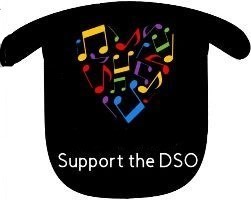
Thank you for being a important part of the Durham Symphony Orchestra family! We appreciate your support and vital impact on our community!
This DSO is funded in part by the City of Durham and is supported by the Durham Arts Council’s Annual Arts Fund and the N.C. Arts Council (a division of the Department of Natural and Cultural Resources).
